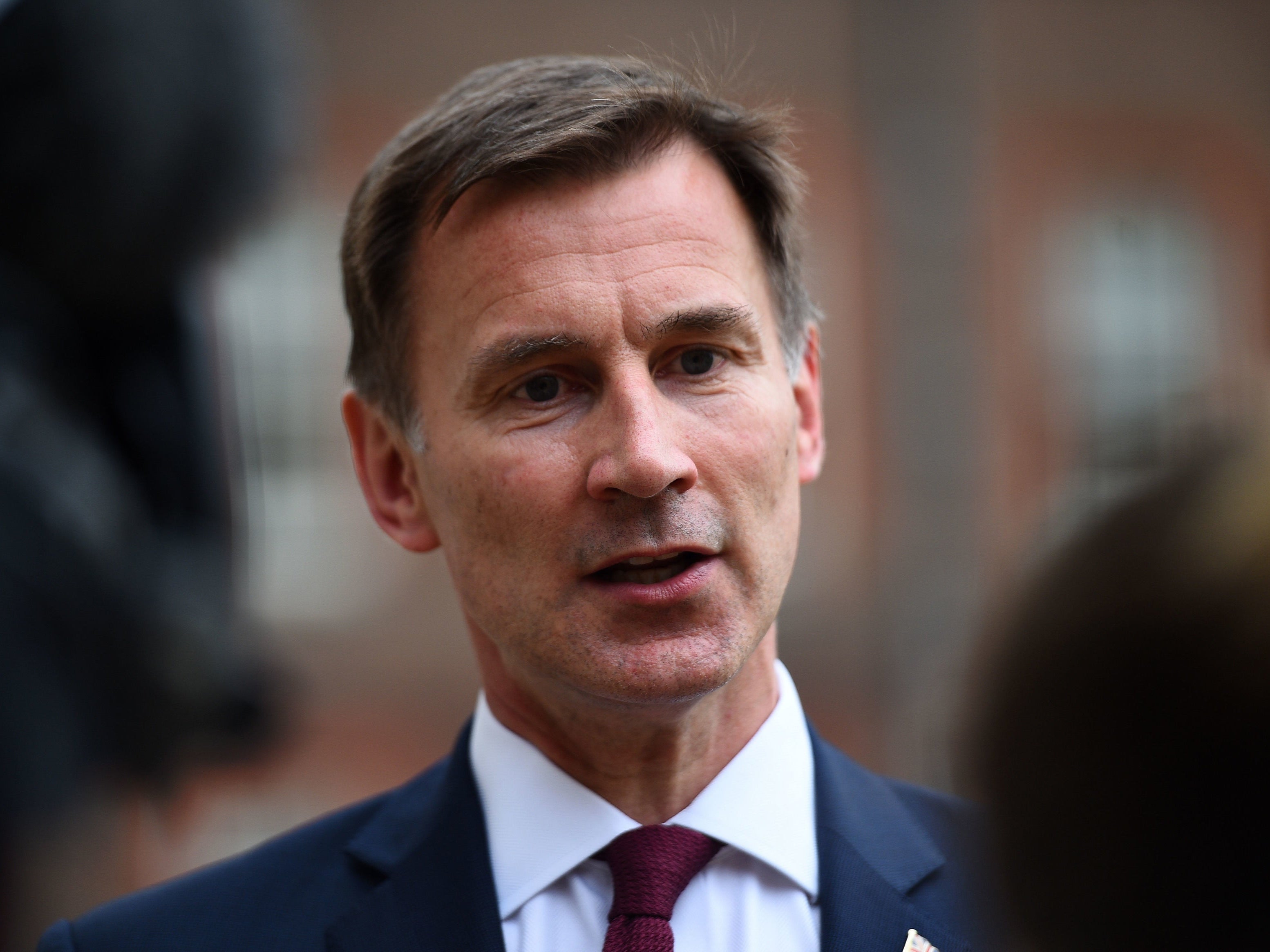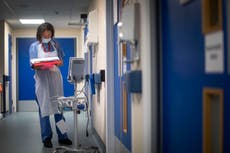Jeremy Hunt says Covid restrictions should stay until cases fall to 1,000 a day
Lockdown-sceptic Tory MPs are pushing for social distancing measures to be eased by May

Your support helps us to tell the story
From reproductive rights to climate change to Big Tech, The Independent is on the ground when the story is developing. Whether it's investigating the financials of Elon Musk's pro-Trump PAC or producing our latest documentary, 'The A Word', which shines a light on the American women fighting for reproductive rights, we know how important it is to parse out the facts from the messaging.
At such a critical moment in US history, we need reporters on the ground. Your donation allows us to keep sending journalists to speak to both sides of the story.
The Independent is trusted by Americans across the entire political spectrum. And unlike many other quality news outlets, we choose not to lock Americans out of our reporting and analysis with paywalls. We believe quality journalism should be available to everyone, paid for by those who can afford it.
Your support makes all the difference.Jeremy Hunt has warned against lifting lockdown restrictions until coronavirus cases fall to 1,000 a day amid calls for measures to be eased by May.
The prime minister is facing pressure from lockdown-sceptic Tory MPs to bring forward the lifting of social distancing restrictions as cases fall and the vaccine rollout continues.
Mark Harper, chairman of the Covid Recovery Group (CRG), said he thought ministers could "get rid of restrictions completely" by the end of May when all those over aged 50 are likely to have received at least one vaccine jab.
And Sir Graham Brady, chairman of the backbench 1922 Committee, said the government was in danger of falling out of step with public opinion if it delayed the reopening of schools in England to 8 March as planned.
Paul Hunter, professor of medicine at the University of East Anglia, also said he thought people would be able to meet up with friends and family in March as the decline in positive cases had given him cause for optimism – although he added some form of social distancing may need to continue until spring 2022 even with effective vaccines.
However Mr Hunt, the former health secretary and current chair of the health select committee, warned ministers should listen "very carefully" to the scientific advice and aim to suppress the virus enough to allow a “South Korean-style approach” of intensive contact tracing possible, in an interview with The Guardian.
He told the newspaper: “I think we have to recognise that the game has changed massively over Christmas with these new variants, and that we mustn't make the mistake that we made last year of thinking that we're not going to have another resurgence of the virus.”
Mr Hunt’s suggestion that restrictions should not be eased until new infections are driven below 1,000 a day would likely mean measures remaining in place for an extended period of time.
On Thursday, 20,634 new cases of coronavirus were reported in the UK, bringing the total to 3,892,459.
Government figures showed a further 915 people also died within 28 days of testing positive for Covid-19, taking the UK’s death toll to 110,250.
And while the latest Public Health England data suggests coronavirus cases have dropped across all regions in England and among all age groups, NHS hospitals are still under considerable pressure as seriously ill patients remain in intensive care.
The prime minister on Wednesday told a Downing Street briefing the level of coronavirus infections in the country was still "forbiddingly high" and that it was too soon to relax current restrictions.
Labour leader Sir Keir Starmer said Boris Johnson should ease the restrictions "in a careful, measured way" to ensure "this lockdown is the last lockdown".
Chris Hopson, chief executive of NHS Providers, which represents trusts in England, also called for a "cautious, evidence-based" approach to any relaxation of lockdown restrictions in England, saying the social-distancing rules had been eased too early last year.
He said there were still 26,000 Covid-19 patients in hospital, 40 per cent more than the peak last April, while the NHS was running at 170 per cent of last year's intensive care unit (ICU) capacity.
Additional reporting by PA




Join our commenting forum
Join thought-provoking conversations, follow other Independent readers and see their replies
Comments